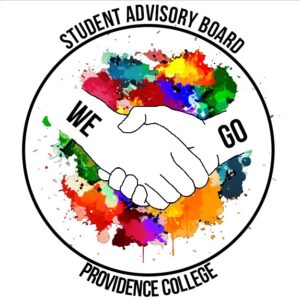by The Cowl Editor on April 19, 2018
Campus
by Hannah Langley ‘21
News Staff

College can present many stressful situations in the life of students, and Dr. Susan Grossman’s community and political practice social work class is working to address this problem. The class, which consists of seven Providence College juniors, explained, “There is a lot of disconnect between the student body and the Personal Counseling Center about the resources and programs offered.”
To bridge this gap, the students have implemented a Personal Counseling Center Student Advisory Board, which will work in conjunction with the Personal Counseling Center, PC’s Care Team, and the chaplains in Campus Ministry. According to the class’s proposal, this group will “support the Counseling Center in providing resources and services that satisfactorily meet the varied… needs of all students.”
According to Kelli Jenney ’19, one of the students working on this project, the advisory board will “include students from every school of study and represent all races, genders, and class grade, as well as student clubs, organizations, and athletes.” By representing students from various areas in the PC community, the advisory board will “enhance the Personal Counseling Center’s services… through its advocacy, feedback, and democratic representation of the student body,” as stated in the class’s proposal.
This initiative began last semester when classmates Brian Barr ’19, Clara Che ’19, Thomas Heavren ’19, Kelli Jenney ’19, Kelsey Doyle ’19, Katherine Nardodillo ’19, and Mackenzie Lawler ’19 worked with Generation Citizen, a national organization where democracy coaches come to local schools and work with students on addressing prevalent issues and helping them solve these problems.
“One thing we found to be a community issue at PC was the concern about student mental health and the lack of knowledge regarding the resources available,” said one of the social work students. To determine whether or not this was an issue the majority of PC students at cared about, the students created a survey to gather their data. Nearly 250 PC students participated in the survey, and the students got an overwhelmingly positive result. “We found that 89.7 percent of students who took the survey wanted a student-run organization to support mental health,” stated one of the students. From there, the students structured their advisory board based on other data collected from the survey, which included student knowledge of basic provisions and safety regarding mental health.
As the proposal states, the goal of this advisory board is not only to facilitate the communication between the Personal Counseling Center and the student body, but also to plan events to promote mental health awareness as well. To promote this, the class has created three different committees that students can apply for when joining the advisory board. These three committees—Outreach, Events, and Awareness—will promote the connection between the student body and the Personal Counseling Center through scheduling events and programs, addressing the concerns of the school community, and furthering student education on mental health.
Another interesting aspect of the advisory board is its specificity in addressing issues with student-athlete counseling. “If a student-athlete wants to go to the counseling center, they can only go to a psychologist who will provide them with counseling about performance-related problems,” said Che. “The sports psychologist is only available for a limited time frame,” explained Heavren, “so each athlete gets probably a fifteen-minute time slot.” This is an area of controversy, as student-athletes’ schedules and lifestyles can become extremely hectic and stressful. The class wants to encourage student-athletes to join the advisory board so that issues like this can be addressed and, hopefully, resolved with work and better communication between the Personal Counseling Center and the student body.
Dr. Grossman commended her students for the dedication they have put into creating this program. “This was all class-driven work, and all the work was done as an incredible unit. They decided their issue and worked on everything themselves. This was a genuine grassroots community-led project,” said Grossman.
While Grossman praised the students for their work, everyone in the class talked about how they could not have accomplished what they have done without her help and support. “Dr. Grossman doesn’t give herself enough credit,” said one student. “She was really a driving force and a great support.” The students also talked about how they are extremely proud of what they’ve achieved and proud of the fact that they are going to leave a lasting impact at PC with this advisory board, saying, “This is our way of making our mark.”
“The Personal Counseling Center is in support of having a committee form to help us with improving communication with the campus,” said Dr. Rosemary Mugan, director of the Personal Counseling Center, “and are excited about the student interest…about the reduction of stigmatization around mental health issues.”
The Personal Counseling Center Student Advisory Board will be a concrete institution by the end of this semester, and students can expect to see an application available soon.